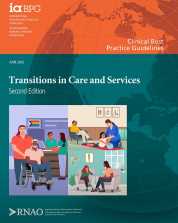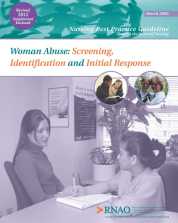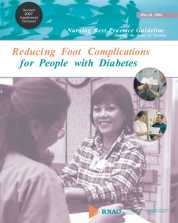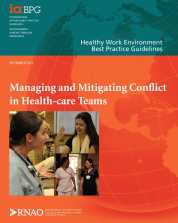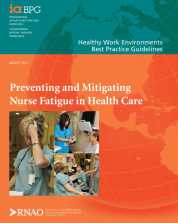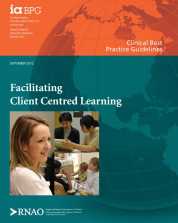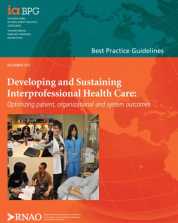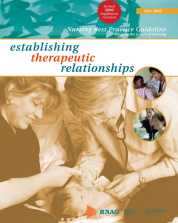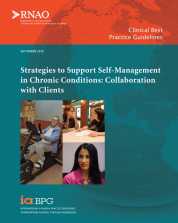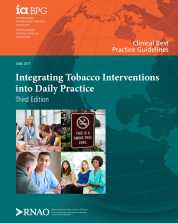The purpose of this best practice guideline (BPG) is to provide evidence-based recommendations for nurses and members of the interprofessional team, organizations and the health system. These recommendations support safe and effective transitions in care for pediatric and adult persons and their support network.
The overall purpose of this guideline is to facilitate routine universal screening for woman abuse by nurses in all practice settings.
The purpose of this best practice guideline (BPG) is to support nurses as they help people with diabetes reduce their risk of foot complications.
The purpose of this best practice guideline (BPG) is to manage and mitigate interpersonal conflict among healthcare teams with the view that while some conflict is preventable, healthy conflict can also be beneficial.
The purpose of this best practice guideline (BPG) is to identify and describe: practices that result in preventing and mitigating fatigue for nurses and other health-care professionals; system resources that support practices to prevent fatigue; organizational culture, values and resources that support effective practices to prevent fatigue; personal resources that can be used to prevent or mitigate fatigue; and anticipated outcomes when fatigue is effectively managed.
The aim of this best practice guideline (BPG) is to provide evidence-based recommendations for Registered Nurses, Registered Practical Nurses and other health-care providers to facilitate client-centred learning that promotes and enables clients to take action for their health.
The purpose of this best practice guideline (BPG) is to foster healthy work environments.
The purpose of this best practice guideline (BPG) is to address the therapeutic relationship and its central importance to nursing practice. Effective nursing practice is dependent on an effective therapeutic relationship between the nurse and the client. The guideline addresses the qualities and capacities of an effective therapeutic relationship, the state of knowledge, and the knowledge needed to be effective in a therapeutic relationship.
The purpose of this best practice guideline (BPG) is to provide evidence-based recommendations for registered nurses and registered practical nurses in self-management support. These recommendations identify strategies and interventions that enhance an individual’s ability to manage their chronic health condition.
The purpose of this best practice guideline (BPG) is to provide best practices for tobacco interventions for nurses and other health-care providers across all care settings, with evidence-based recommendations related to assessment and interventions for adults who use tobacco.
